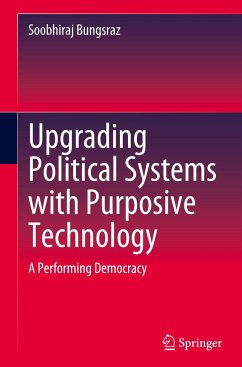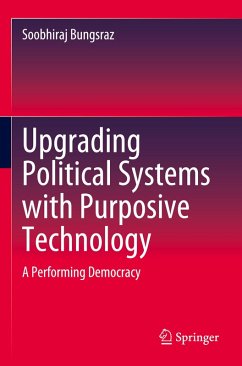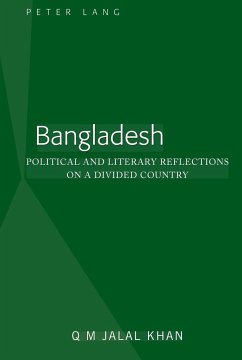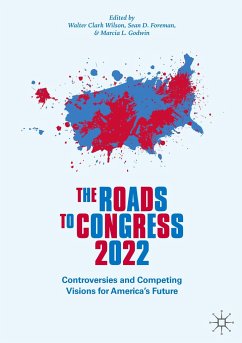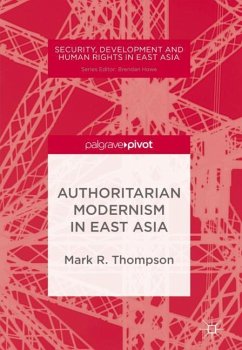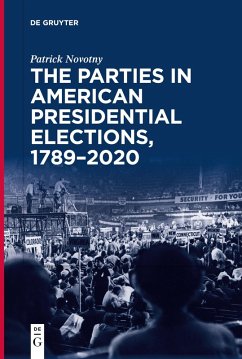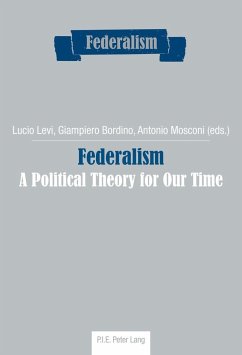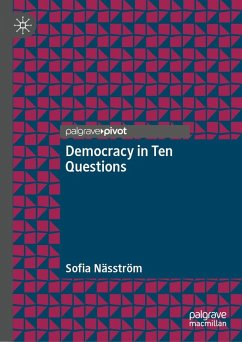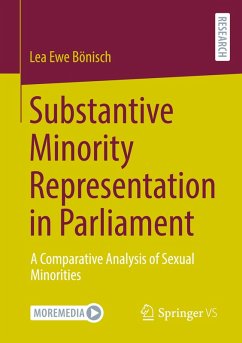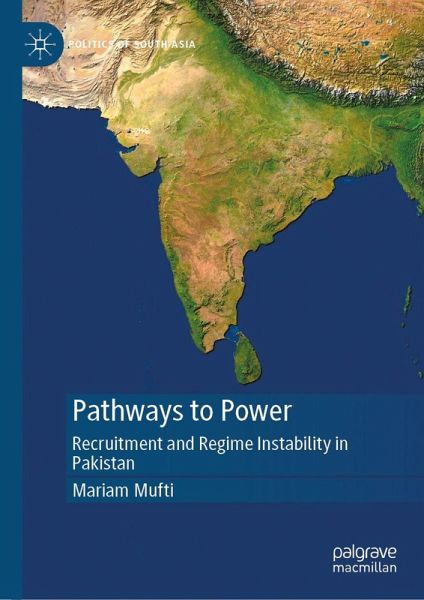
Pathways to Power
Recruitment and Regime Instability in Pakistan
Versandkostenfrei!
Versandfertig in 6-10 Tagen
65,99 €
inkl. MwSt.

PAYBACK Punkte
33 °P sammeln!
This book examines the persistent instability in Pakistan s regime addressing how we understand the shifts in the combination of authoritarian and democratic tendencies, and why is it that the regime does not go beyond the threshold of a transitioning democracy. In doing so, it emphasizes the importance of how power is distributed within a regime, by assessing candidate recruitment and selection in Pakistan.The book builds on the structural approaches by K.B. Sayeed (1968), Jalal (1995) and Tudor (2013) on the origins of democracy in Pakistan by questioning why an unstable regime has persisted...
This book examines the persistent instability in Pakistan s regime addressing how we understand the shifts in the combination of authoritarian and democratic tendencies, and why is it that the regime does not go beyond the threshold of a transitioning democracy. In doing so, it emphasizes the importance of how power is distributed within a regime, by assessing candidate recruitment and selection in Pakistan.
The book builds on the structural approaches by K.B. Sayeed (1968), Jalal (1995) and Tudor (2013) on the origins of democracy in Pakistan by questioning why an unstable regime has persisted in Pakistan despite electoral turnover and the entry of new political players. It then goes on to propose that if one treats elite recruitment as the independent variable explaining political regimes, the strategies employed by the elite to access power and perpetuate themselves in power explains why these elite do not have the incentive to move towards democracy, choosing instead a hybrid political system.
Building on original field research conducted in Pakistan from 2008 to 2016, including 191 semi-structured interviews with politicians, bureaucrats, retired military officials, policy-makers and journalists, research in the book is also informed by focus groups conducted with party workers and activists, and thorough archival research of newspapers, monthly magazines and special editions covering elections. The book also provides the most easily accessible electoral data of Pakistan s National Assembly elections since 1988 in tabular form, data on electoral volatility, and rates of party-switching.
The book builds on the structural approaches by K.B. Sayeed (1968), Jalal (1995) and Tudor (2013) on the origins of democracy in Pakistan by questioning why an unstable regime has persisted in Pakistan despite electoral turnover and the entry of new political players. It then goes on to propose that if one treats elite recruitment as the independent variable explaining political regimes, the strategies employed by the elite to access power and perpetuate themselves in power explains why these elite do not have the incentive to move towards democracy, choosing instead a hybrid political system.
Building on original field research conducted in Pakistan from 2008 to 2016, including 191 semi-structured interviews with politicians, bureaucrats, retired military officials, policy-makers and journalists, research in the book is also informed by focus groups conducted with party workers and activists, and thorough archival research of newspapers, monthly magazines and special editions covering elections. The book also provides the most easily accessible electoral data of Pakistan s National Assembly elections since 1988 in tabular form, data on electoral volatility, and rates of party-switching.



